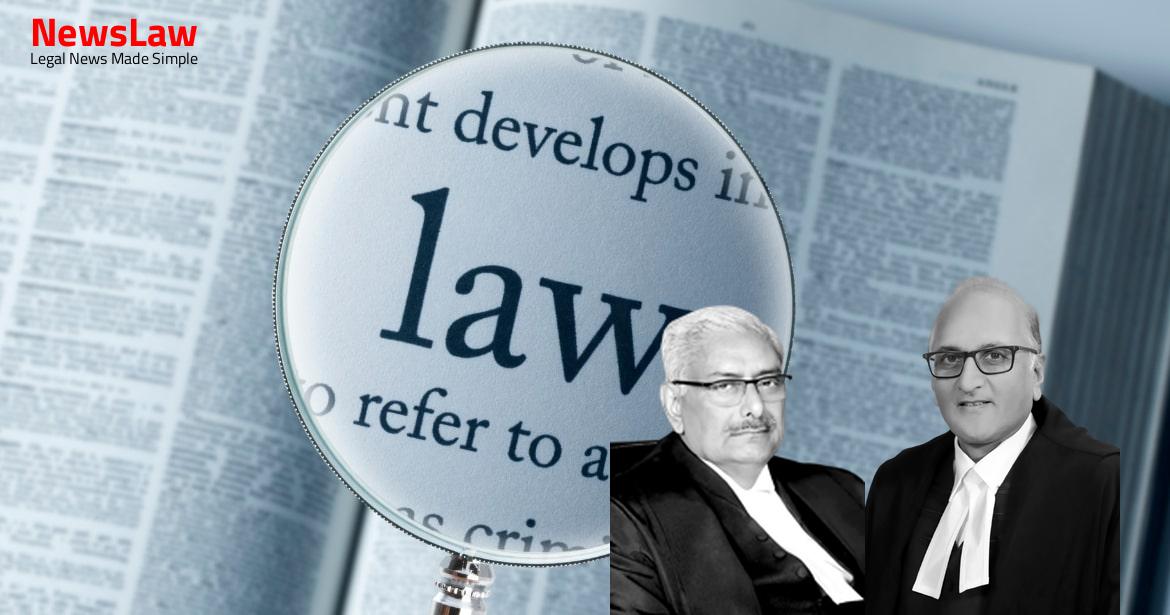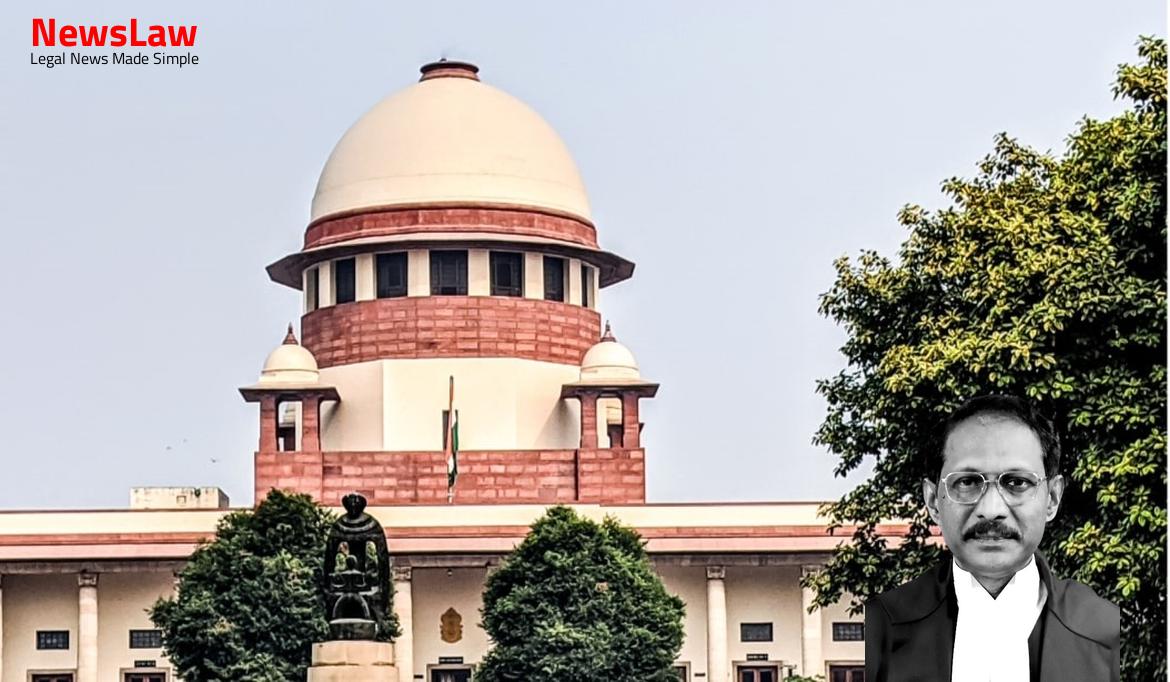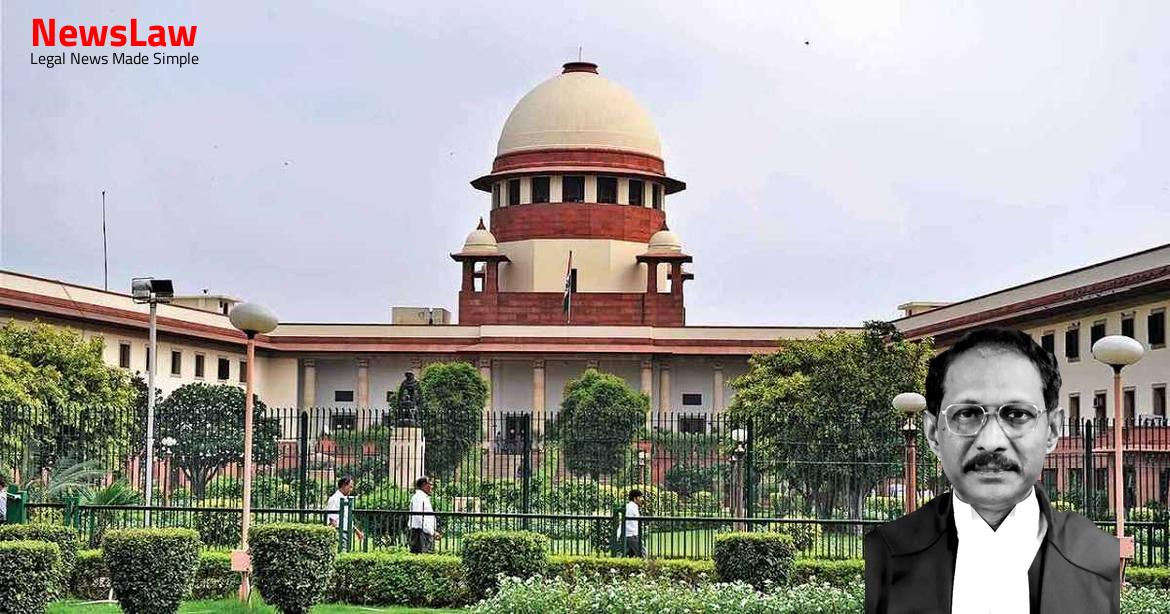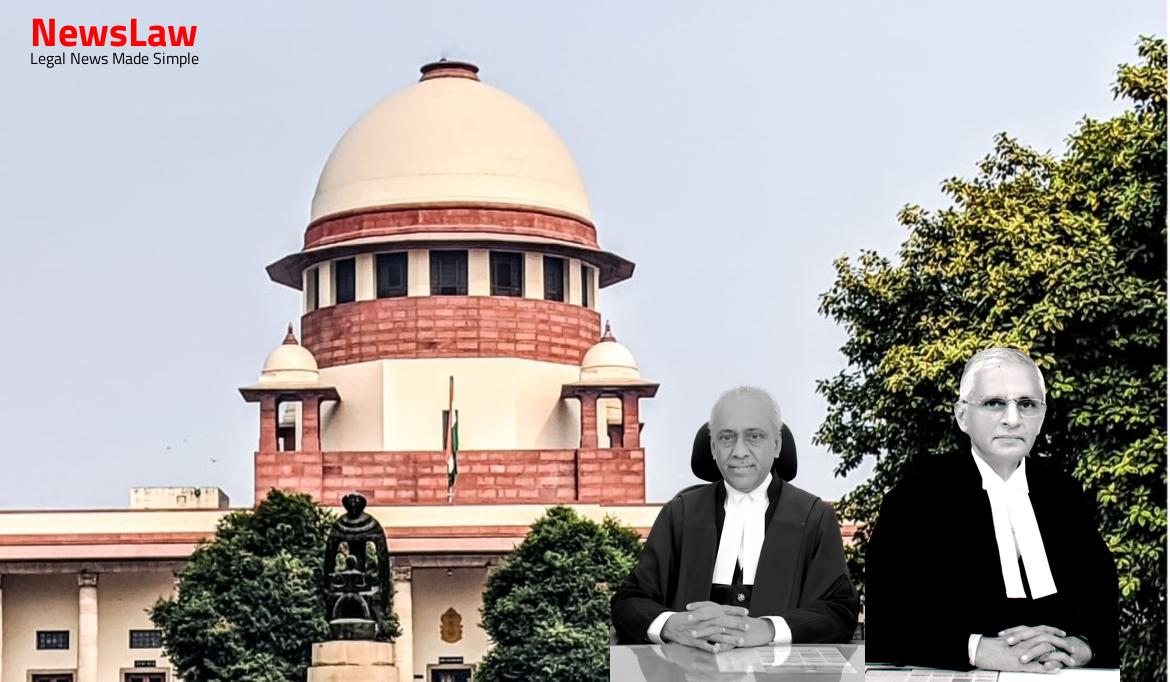In a significant ruling by the Supreme Court of India, the case of Dicitex against the insurer regarding arbitration and discharge voucher disputes has been resolved. The court addressed the issue of economic duress and coercion raised by Dicitex in the settlement process, emphasizing the importance of examining the involuntariness of the discharge voucher. This judgment sets a precedent in determining the arbitrability of claims made under such circumstances.
Facts
- Dicitex, the insured, informed the insurer about a fire incident on 25.05.2012, resulting in a loss of approximately 15 crores.
- Several letters were exchanged between Dicitex and the insurer regarding the claim settlement process.
- Dicitex alleged coercion in signing the discharge voucher and withdrawal of protest letter under economic duress.
- The insurer disputed the arbitration request, claiming Dicitex had accepted the settlement amount with the discharge voucher.
- Dicitex presented financial difficulties faced due to delayed claim settlement, including high-interest loans and tax payment delays.
- Multiple surveyors were involved in assessing the claim amount, with discrepancies in the figures provided to Dicitex.
- There were disagreements between Dicitex and the insurer regarding the final settlement amount, leading to arbitration request by Dicitex.
- Dicitex was facing financial constraints and economic duress due to delay in claim payment.
- The respondents did not release the final claim for 27 months after the fire incident.
- Dicitex had pressure from bankers and other liabilities during this period.
- The discharge voucher signed by Dicitex cannot be considered unconditional due to the circumstances.
- If Dicitex had not signed the discharge voucher, the respondents may not have released any payment.
- The respondents could not insist on the discharge voucher as a pre-condition for releasing payment without legal basis.
Also Read: Legal Analysis of Claim for Loss of Profit in Delayed Contract
Analysis
- The court discussed the issue of discharge of contract by accord and satisfaction in the context of arbitration claims.
- The court observed that burdening a party with arbitration costs due to fraud, coercion, duress, or undue influence claims may not be fair.
- It emphasized the importance of examining the involuntary nature of the discharge voucher in determining arbitrability.
- The court noted instances where claims were made belatedly, raising doubts on the genuineness of coercion or undue influence allegations.
- Illustrations were provided to explain when claims are arbitrable and when they are not in the context of discharge of contract by accord and satisfaction.
- The court highlighted the need for prima facie credibility in coercion and undue influence claims to determine arbitrability.
- The court referred to precedents like Boghara Polyfab to establish principles around arbitration in cases of discharge vouchers.
- Setting up a plea of fraud, coercion, duress, or undue influence requires substantiating it with material before the Chief Justice or his designate.
- Courts do not refer subsequent claims or disputes to arbitration when both parties confirm in writing that the contract has been fully discharged.
- Issuance of a full and final discharge voucher or no-dues certificate results in the discharge of the contract, barring any fresh claims or arbitration reference.
- If a party alleges that the execution of a discharge agreement was due to fraud, coercion, or undue influence, the agreement becomes void, and disputes are arbitrable.
- A claim for arbitration cannot be rejected solely based on the execution of a settlement agreement or discharge voucher.
- The concept of economic duress has been upheld in legal precedents like Associated Construction v. Pawanhans Helicopters Ltd.
- Courts have highlighted the importance of substantiating allegations of coercion with supporting material for considering accord/satisfaction or no dues certificates as involuntary.
- The appeal is considered unmerited based on the discussion provided
- The appeal is dismissed without any direction on costs
Also Read: Public Declaration Requirement in Marriage under Hindu Marriage Act
Decision
- Admitted or undisputed claims are paid.
- After the contract is discharged by accord and satisfaction, the contract and any dispute do not survive for consideration.
- A claimant makes a claim for a huge sum by way of damages.
Also Read: OCI Cardholders’ Rights and Retroactive Notifications
Case Title: THE ORIENTAL INSURANCE CO. LTD. Vs. DICITEX FURNISHING LTD.
Case Number: C.A. No.-008550-008550 / 2019



